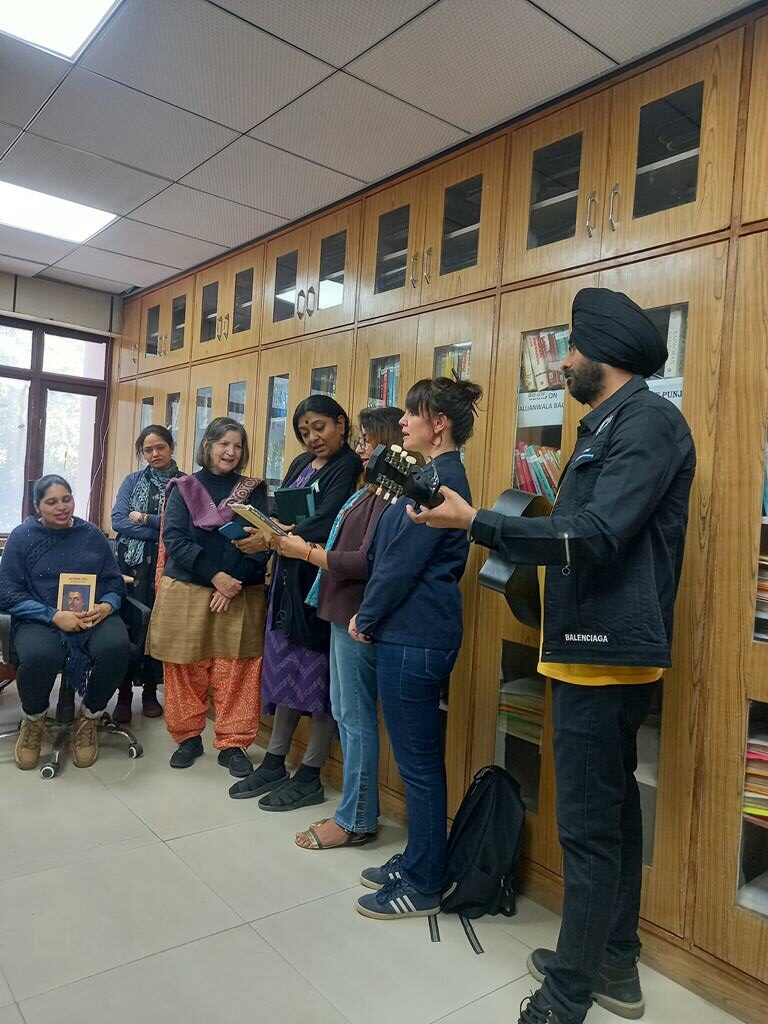Exclusive PHOTOS: 1848 Hungarian Revolution commemorated in India

Gopalan Rajamani, Guest Author
On 6 March 2024, the Liszt Ferenc Cultural Centre in India, organised an event to commemorate the 1848 Hungarian Revolution in collaboration with the Bhagat Singh Archives & Resource Centre (BSARC). Curated by Professor Chaman Lal, Advisor to the BSARC, and Dr. Margit Köves, Visiting Assistant Professor of Hungarian Language and Culture at the University of Delhi, the event brought together a blend of cultures and histories.
Bhagat Singh (1907-1931) remains an enduring symbol of Indian resistance against colonial rule. His fearless defiance and ultimate sacrifice, alongside his comrades Sukhdev and Rajguru, who were executed on 23 March 1931, for the assassination of a British police officer, continue to inspire generations. Even today, Bhagat Singh stands as a towering figure of revolution and patriotism in India.
BSARC, established by the Department of Delhi Archives on 23 March 2018, commemorates the martyrdom day of Bhagat Singh, Rajguru, and Sukhdev. Its primary objective is to centralise archival and resource material on Bhagat Singh and other Indian revolutionaries scattered across the country, making it accessible to researchers, scholars and readers. Professor Chaman Lal, the visionary behind BSARC, has generously contributed over 1500 books in various Indian languages to the BSARC.
.

Professor Chaman Lal, reflecting on his lifelong fascination with Bhagat Singh, shared insights into the revolutionary’s heroic life. March holds significance for both both countries, with Hungary commemorating the 1848 Revolution, and India honouring the martyrdom of Bhagat Singh, Rajguru, and Sukhdev during this month.
India-Hungary connection
Although from different countries, centuries and cultures, Petőfi and Bhagat Singh share striking similarities. Both were driven by an unwavering passion for freedom and fought valiantly for the liberation of their nations, ultimately sacrificing their lives. Their legacy, however, transcends borders, with their popularity soaring after their respective countries attained independence.
During the event, past and present Hungarian language students of the University of Delhi showcased their talents by reciting Petőfi Sándor’s poems in both Hungarian and Hindi. Professor Chaman Lal also presented a Hindi translation of one of Petőfi’s poems. The audience was treated to musical renditions of Petőfi’s poetry and other songs. A highlight of the evening was Santosh Joy’s poignant poem depicting a fictional encounter between Petőfi and Bhagat Singh in Delhi, offering profound insights into contemporary issues. Overall, it was an inspiring and thought-provoking event, celebrating the rich cultural exchange between India and Hungary.
Read also:
- Opening of the exhibition “Soul and Body” to mark the 111th anniversary of the birth of Amrita Sher-Gil – read more HERE
- Hungarian Busó Mask Carnival at Delhi, India – photos, details in THIS article
Source:









